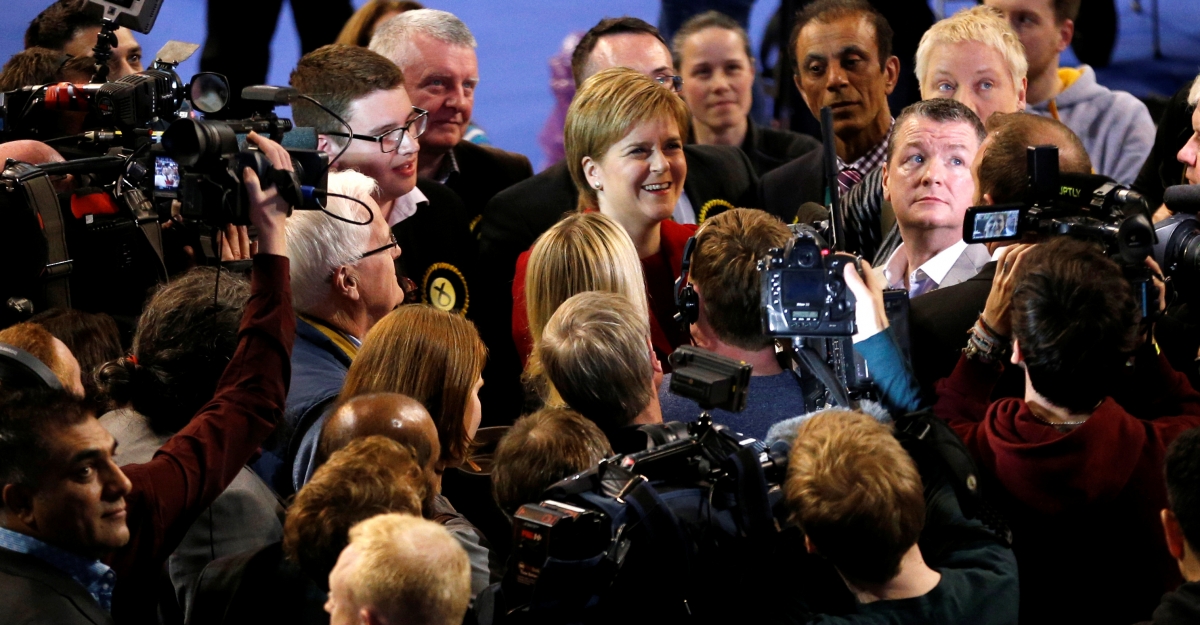Scottish election: SNP has it all – a pro-independence majority and dream opposition
- By James Kelly


OK, that clearly shouldn't be regarded as any sort of shock at all, but perhaps on this occasion people can be forgiven for a degree of surprise or dismay. For months now, siren voices on the left have urged SNP voters to regard a majority as a foregone conclusion, and to seize the opportunity to cast a 'luxury' vote for a smaller pro-independence party like the Greens on the party list ballot – the second of two votes in the Scottish voting system. The success of that propaganda campaign may partly explain why the SNP vote increased on the constituency ballot, but slipped back on the all-important list ballot.
As a result, Scotland's so-called 'Yes family' has unintentionally swapped a pro-independence majority, dependent only on the SNP, with a pro-independence majority dependent on two parties.
From a presentational point of view, that was clearly a very unwise thing to do, and the anti-independence parties will enjoy having a little something to gloat about over the coming days. But when the dust settles, the reality of a continuing pro-independence majority will begin to sink in, and it will come to be understood that the prospects for a second referendum at some point in the future have not significantly diminished.
It's true that the Greens are suspected by many SNP supporters of being lukewarm towards a second referendum, and perhaps even towards independence itself. But the reality is that the Green party was changed as fundamentally by the referendum experience as Scotland itself was. The bulk of current party members joined in September 2014 or afterwards – and they wouldn't have done so unless they felt they were signing up to a committed 'Yes' party.
Whatever the private feelings of Patrick Harvie and other Green leaders, it seems inconceivable that the rank and file would allow any firm SNP proposal for a second referendum – in the event of Brexit, for example – to be thwarted.
When the dust settles, the reality of a continuing pro-independence majority will begin to sink in, and it will come to be understood that the prospects for a second referendum at some point in the future have not significantly diminishedThere's also another counterintuitive reason why, in the long run, this election may have made independence more rather than less likely. The astonishing success of Ruth Davidson's Conservatives in supplanting Labour as the second force in Scottish politics was actually founded upon an extraordinary weakness.
Ruth Davidson campaigned for a mandate to be a fiercely anti-independence leader of the opposition, and that's all she can ever beUnless Labour can get back into the game, the medium-to-long-term battle for the union is lost. It may not even be possible for them to do so, but if there is any chance at all it surely depends on them softening their fundamentalist unionism. One of the most extraordinary spectacles, as the results came in, was the procession of Labour commentators insisting that the party had taken a pounding because it hadn't been unionist enough. It's murderously hard to see what more their leader Kezia Dugdale could have done in that respect – she repeatedly said that she would vote against a referendum in all circumstances, and against independence in all circumstances. If you can't win a battle to out-unionist the Tories, why even try?
It's possible that the penny may yet drop, and that Labour will emerge as a thoughtful party of the constitutional centre ground – perhaps embracing federalism or devo-max. But if they don't, their inevitable descent into irrelevance will leave their hold-out voters in search of a new home – and if that home is the SNP, those people may also start to see independence as part and parcel of the alternative centre-left project they have signed up to. The new independence coalition forged by this election result could be unstoppable.
Narrowly losing her overall majority hasn't changed Nicola Sturgeon's ultimate destination... but it's certainly made her route a whole lot more interesting than she ever expected.
James Kelly is author of the Scottish pro-independence blog, SCOT goes POP! Voted one of the UK's top political bloggers, you can hear more from James on Twitter: @JamesKelly

No comments:
Post a Comment